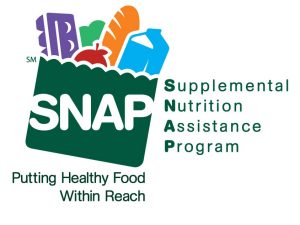Farm Bill Update: Proposed Changes to SNAP
May 18, 2018 Federal programs that support financial stability, like the Supplemental Nutrition Assistance Program (SNAP), can help families, older adults, and people with disabilities shore up their foundations and create a durable structure that will support them throughout their lives. SNAP is our nation’s most effective anti-hunger program, and improved the financial stability of roughly 8.4 million people in 2015. SNAP is also efficient because 93% of all allocated funds are spent directly on food. Moreover, most working-age adults receiving SNAP are employed.
Federal programs that support financial stability, like the Supplemental Nutrition Assistance Program (SNAP), can help families, older adults, and people with disabilities shore up their foundations and create a durable structure that will support them throughout their lives. SNAP is our nation’s most effective anti-hunger program, and improved the financial stability of roughly 8.4 million people in 2015. SNAP is also efficient because 93% of all allocated funds are spent directly on food. Moreover, most working-age adults receiving SNAP are employed.
The House version of the farm bill, H.R. 2, would impose much more stringent SNAP work requirements that would result in a net loss in benefits of $17 billion over the next ten years. The legislation would require most adult SNAP recipients, including parents with children ages six and up and older workers up to age 60, to prove every month that they were employed or participated in a work program for at least 20 hours a week (or otherwise qualified for an exemption). Any recipient who fails to meet this new requirement could lose their SNAP benefits. The bill would also increase the “cliff effect” related to the income-level at which families are no longer eligible by eliminating the option for states to modify their respective eligibility rules to include families in the program who earn modestly over the maximum of 130% of the federal poverty level.
House leadership purports to offset these changes with additional employment training programs, but analysis indicates funding for those programs would be “woefully inadequate.” According to the Congressional Budget Office (CBO), the stricter work requirements would cause about 1.2 million adults to lose their SNAP benefits and another 400,000 to lose SNAP due to the change in income threshold. These changes were meant to persuade more conservative House Members to support the agriculture bill but many moderate Republicans and nearly all Democrats disfavor the changes.
The National Human Services Assembly opposes any changes to the SNAP work requirements that would reduce access to the program. SNAP is an important tool that many families rely on to help them become financially stable and should be protected and expanded. Human services increase the benefits of programs like SNAP by adding additional materials that build social, emotion, and physical well-being so everyone can fully contribute to their communities.

